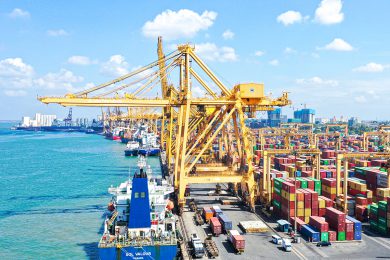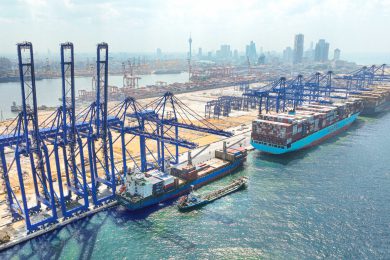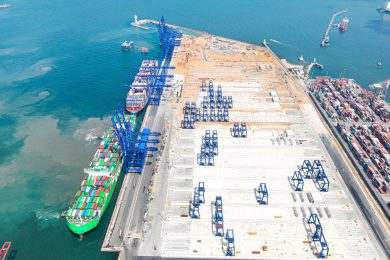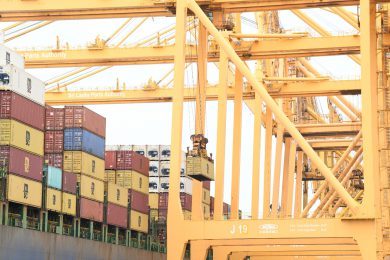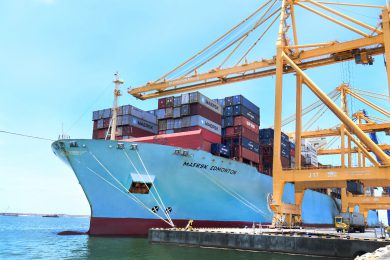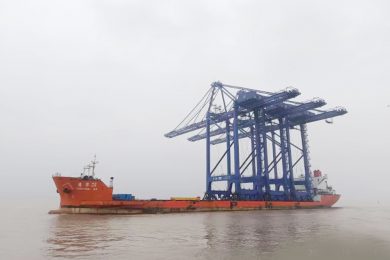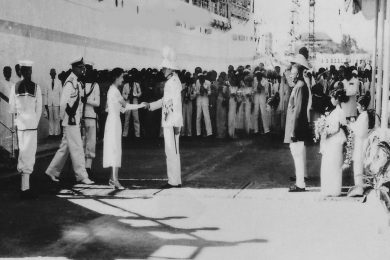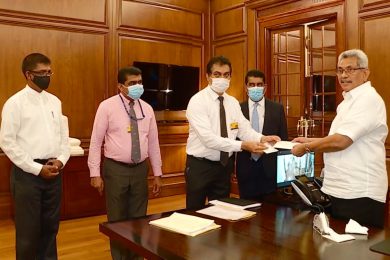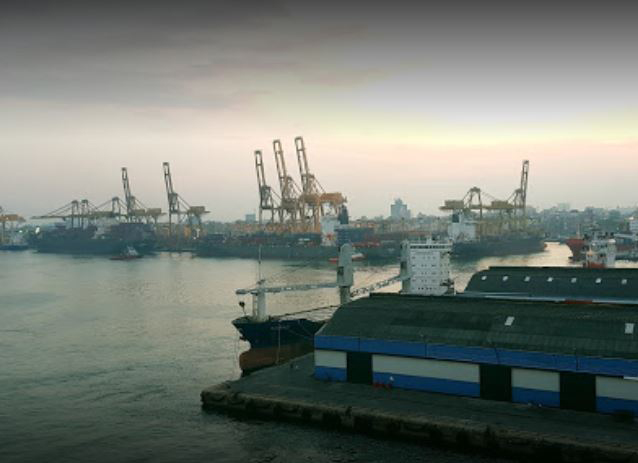The Sri Lanka Ports Authority (SLPA) yesterday assured the business community and the general public that all Lankan seaports were safe from dangerous cargo as they were handled in conformity with UN regulations.
This assurance came from Sri Lanka Ports Authority Chairman General Daya Ratnayake in the aftermath of the explosion at the Beirut seaport in Lebanon last week, where 2750 tonnes of Ammonium Nitrate, imported and stored from 2014, exploded. The SLPA Chairman was responding to a question from Local Media as to whether similar threats existed in the Sri Lankan seaports as well.
This also follows President Gotabaya Rajapaksa telephoning the SLPA Chairman last Wednesday during which the President had told him to take fresh stock of the situation and to rectify any shortcomings if there were any. This was followed by a meeting on Friday morning which was chaired by the SLPA Chairman which had SLPA officials, Customs officials the four Terminal Operators, Jaye Container Terminal (JCT), South Asia Gateway Terminals (SAGT) which operates Queen Elizabeth Quay and Colombo International Container Terminals which operates the Colombo Terminal of the Colombo South Port.
The SLPA Chairman told local media that there were the Ports of Colombo, Galle, Trincomalee and Hambantota which came under the SLPA. He said that there were various cargoes which included explosives, dangerous chemicals which were handled by the ports, but which were handled and discharged under the guidelines of the International Maritime Organization (IMO), the security arm of the United Nations. These guidelines have been specified by the International Maritime Dangerous Goods Code and the nine categories under that are: Explosive materials (Class 1), Gases (Class 2), Flammable Liquids (Class 3), Flammable Solids (Class 4), Oxidizing Substances and Organic Pesticides (Class 5), Toxic and Infectious Substances (Class 6), Radioactive Materials (Class 7), Corrosive Materials (Class 8) and Miscellaneous Dangerous Substances ( Class 9)
Meanwhile, SLPA Additional Managing Director, Upali de Zoysa, told the local media, that all the port operators have taken the maximum precautious regarding the handling of dangerous cargo while taking the minimum risk in accordance with the UN regulations.
He said that a majority of the cases where explosives were imported were the three Armed Forces which were also discharged expeditiously. If certain items which were not collected by the consignee, they would be auctioned by the Port Operators within 21 days, he said.



